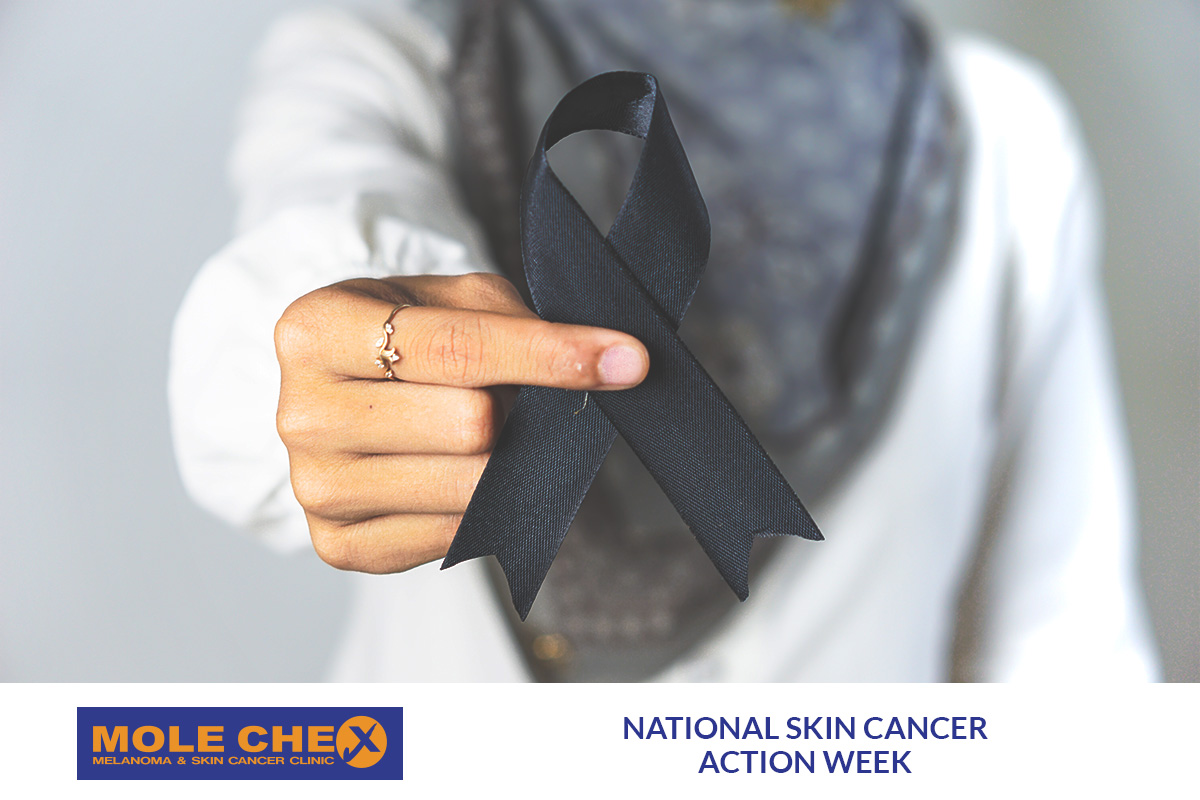
Australia has one of the highest rates of skin cancer globally, with about two-thirds of Australians expected to be diagnosed with skin cancer by the age of 70. National Skin Cancer Action Week, held annually in November, is an essential reminder of the dangers of skin cancer and the importance of proactive sun protection. Co-hosted by the Cancer Council Australia and the Australasian College of Dermatologists, this week underscores the need for better public awareness and encourages Australians to adopt lifelong sun-safe behaviours.
Why National Skin Cancer Action Week Matters
Skin cancer is often referred to as Australia’s “national cancer” due to its high prevalence across the country. Over 2,000 Australians die from skin cancer each year, a figure that highlights the urgent need for preventive measures. Yet, most skin cancers are preventable with proper sun protection.
The campaign encourages everyone to:
- Slip on protective clothing
- Slop on broad-spectrum sunscreen SPF30+ or higher
- Slap on a wide-brimmed hat
- Seek shade whenever possible
- Slide on UV-protective sunglasses
These five simple actions can dramatically reduce the risk of skin cancer, especially during the high UV exposure months of summer.
The Importance of Early Detection
While prevention is key, early detection of skin cancer is just as crucial. Melanoma, one of the deadliest forms of skin cancer, can be treated effectively if caught early. National Skin Cancer Action Week promotes regular skin checks, either at home or with a qualified healthcare professional, as a fundamental practice for catching abnormalities before they develop into serious health concerns.
A Special Focus on Men Aged 40-59
This year’s campaign places particular emphasis on men aged 40-59, who have been shown to be less likely to adopt sun-safe habits and more likely to develop skin cancer, particularly melanoma. Research reveals that men in this age group are often less vigilant about using sunscreen, wearing protective clothing, or seeking shade, making them disproportionately at risk. As a result, targeted messages this year are focused on encouraging men to prioritise their skin health.
Tips for Staying Sun-Safe All Year Round
Although summer is a high-risk period, sun protection should be a year-round habit. UV levels in Australia can be dangerously high even on cloudy days, and it is crucial to check the UV index daily. Additional tips include:
- Reapply sunscreen every two hours when outdoors, especially after swimming or sweating.
- Check your skin regularly for new spots or changes to existing moles. Early detection can save lives.
- Cover up whenever possible, even during short outings.
UV Awareness and The Sun Smart App
- One of the cornerstones of effective sun protection is understanding the UV Index, which measures the intensity of UV radiation. Skin damage can occur when the UV index reaches 3 or higher. NSCAW encourages Australians to make use of tools like the Sun Smart app and the Bureau of Meteorology’s UV forecasts, allowing people to plan their outdoor activities safely.
Conclusion: Let’s Make Sun Safety a Priority
National Skin Cancer Action Week is a timely reminder for all Australians to rethink their approach to sun protection. With skin cancer being largely preventable, simple actions can save lives. This campaign encourages not just individuals but entire communities to embrace sun-smart behaviours and regular skin checks to ensure the best outcomes for skin health. For more resources and ways to get involved, consider participating in local events and spreading the message of skin cancer prevention throughout your community.
Learn more by reading other articles :

